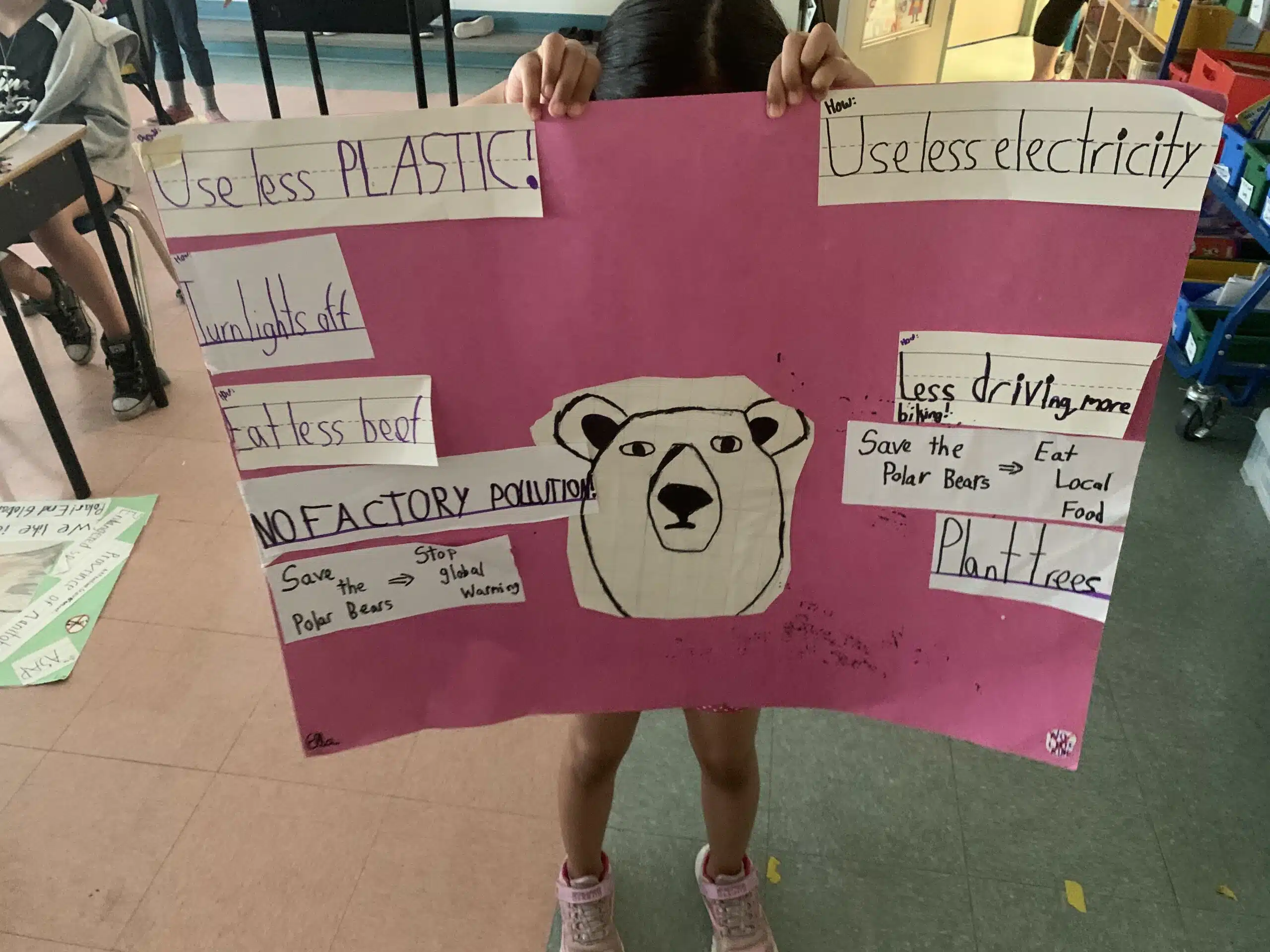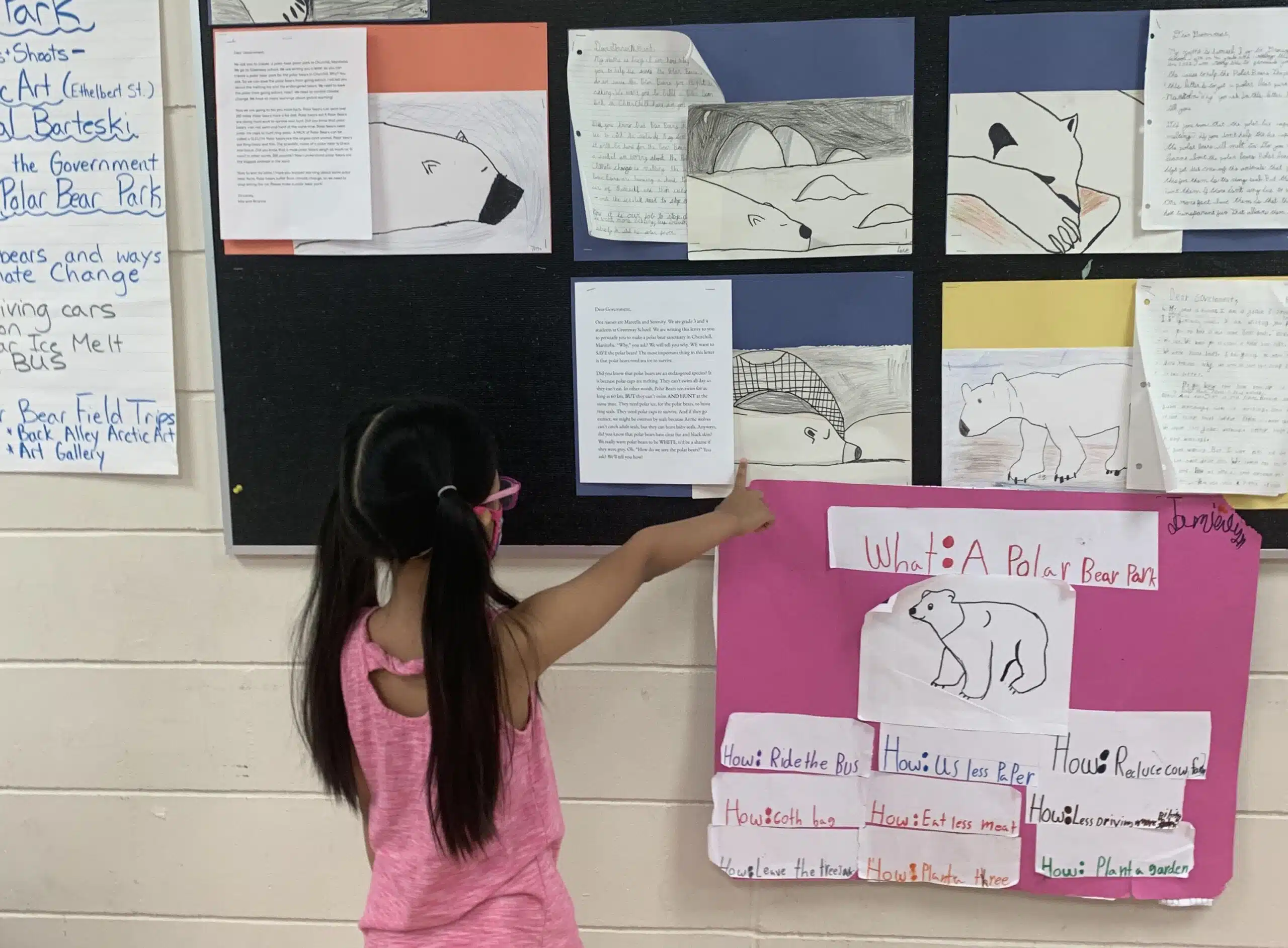
By Mira Oberman, Director of Communications and Public Programs
On a sticky hot day in late June, 17 grade three and four students marched in the Winnipeg zoo calling on people – and the Manitoba government – to take action to protect polar bears.
“We like ice, so just be nice – save the polar bears!” Nathaniel’s poster declared under a drawing of two tired polar bears sleeping on the dry ground.
Teng’s poster focused on how to fight climate change and protect polar bear habitat.
“Plant more trees!” “Bike more, Drive less!” she declared in powerful words surrounding a stark polar bear face. “Drink less milk, eat less meat!” “Reduce, reuse, recycle!” “Compost waste” “Turn off the lights that you don’t need anymore” “Plant a tree = oxygen.”
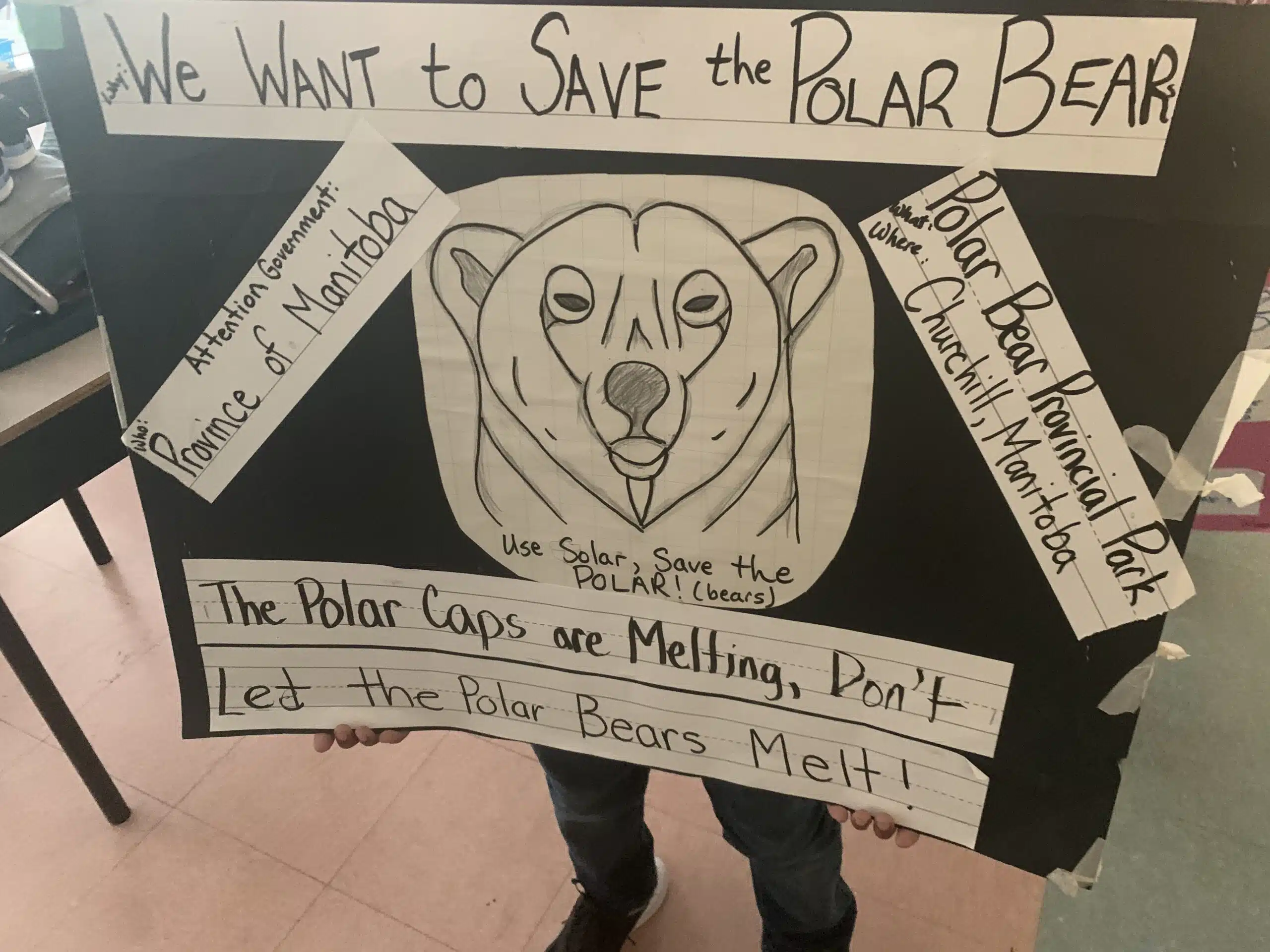
Students at Greenway school created posters to help protect polar bears in Manitoba.
The students were inspired to learn more about polar bears after a field trip to the Back Alley Arctic, where they got to speak with artist Kal Barteski about her polar bear murals.
Barteski told the students about a CPAWS campaign to protect polar bear habitat in northern Manitoba.
They went to the CPAWS website and were intrigued to learn about a connection between conservation and reconciliation, said teacher Sarah Claassen.
CPAWS is calling on the provincial government to support the efforts of northern First Nations which are working to establish Indigenous Protected Areas in the Hudson Bay Lowlands.
“The kids really appreciated the connection to the Indigenous lands,” Claassen explained.
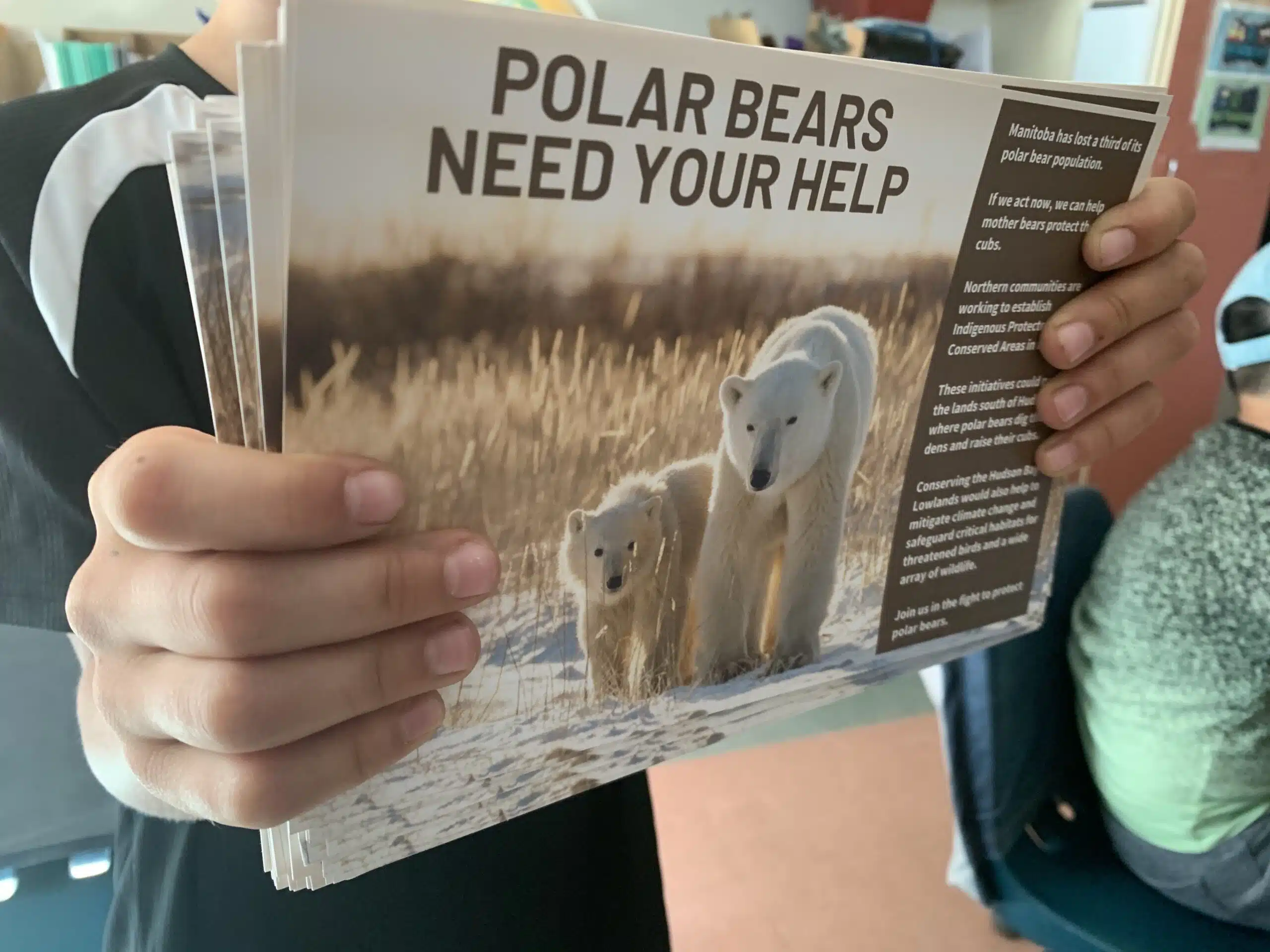
Nathaniel holds 94 postcards their class got signed at Greenway school.
So the students spent weeks learning about polar bears and climate change, writing letters to the government and designing posters for their rally.
They met with their local MP, Lisa Naylor, who is the NDP’s environment critic.
They got 94 of their fellow students to sign postcards in support of protecting polar bear habitat.
Then they invited CPAWS into their classroom on one of the last days of school to share what they’d learned.
– ‘ WE want to SAVE the polar bears!’ –
“We need to learn about climate change so we can brainstorm ideas to stop the planet from overheating,” Nathaniel told Mira Oberman, director of communications and public programs for CPAWS Manitoba.
“One way to save polar bears is to eat less meat and local shop,” added Briana.
“One of the ways we can stop climate change is we can plant a tree which produces oxygen,” said Serenity.
The students also took turns standing up and reading the letters they’d written to the government.
Kalia and Adelaide’s letter spanned two pages and included seven jokes like “Why weren’t polar bears affected by covid? They’ve been ice-olating all their lives” and some great facts like “polar bears can swim for as long as 60 km, but not ALL DAY.”
“We are writing this letter to persuade you to make a polar bear sanctuary in Churchill, Manitoba,” Marcella and Serenity wrote. “‘Why,’ you ask? We will tell you why. WE want to SAVE the polar bears! The most important thing in this letter is that polar bears need sea ice to survive.”
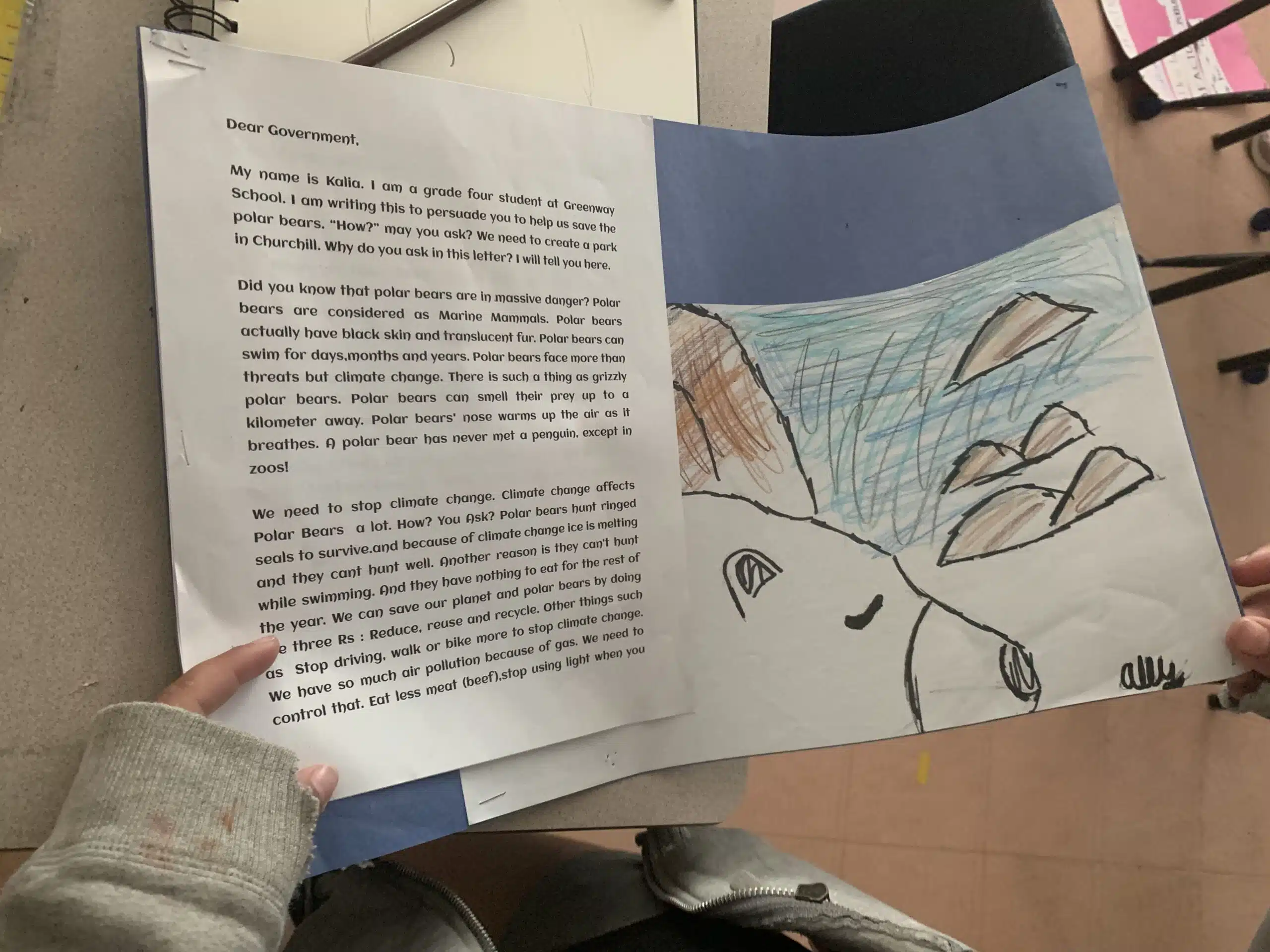
The students wrote letters to the provincial government urging for the protection of polar bears in Manitoba.
Oberman thanked the students for their hard work on behalf of polar bears.
“Those letters you wrote were amazing! And they’re going to have a real impact,” Oberman told the class. “A real person in the government is going to read your letters and they’re going to talk to their boss and decide how they should respond to you. Then they’re going to write you back.”
The impact of their work goes beyond influencing the government, she added. They can take what they’ve learned about fighting climate change and encourage their friends and family to take action as well.
– ‘It’s something that’s meaningful to them’ –
The polar bear project inspired the students to grow in many ways, teacher Sarah Claassen said.
“Some of these folks are people who did not write a single word at the beginning of the school year and now they’re writing passionate letters.”
“When you read the letters from the students, you can tell through the phrasing and figures of speech and the way their voices are being spoken through those letters, you can tell this isn’t something just assigned to them on a single day. It’s a longer, front-loaded process where they’re learning.
It’s something that’s meaningful to them. It’s tangible.”
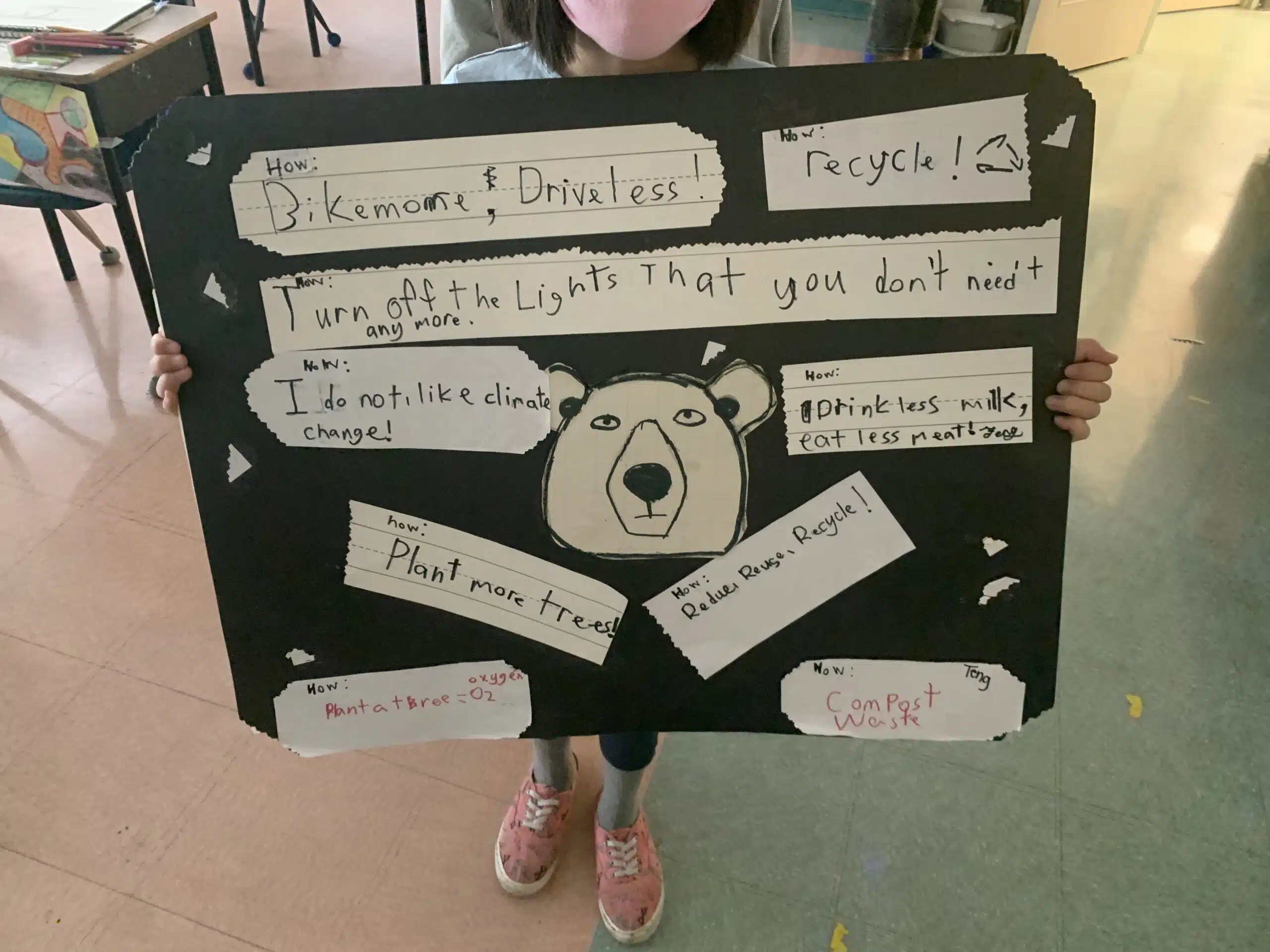
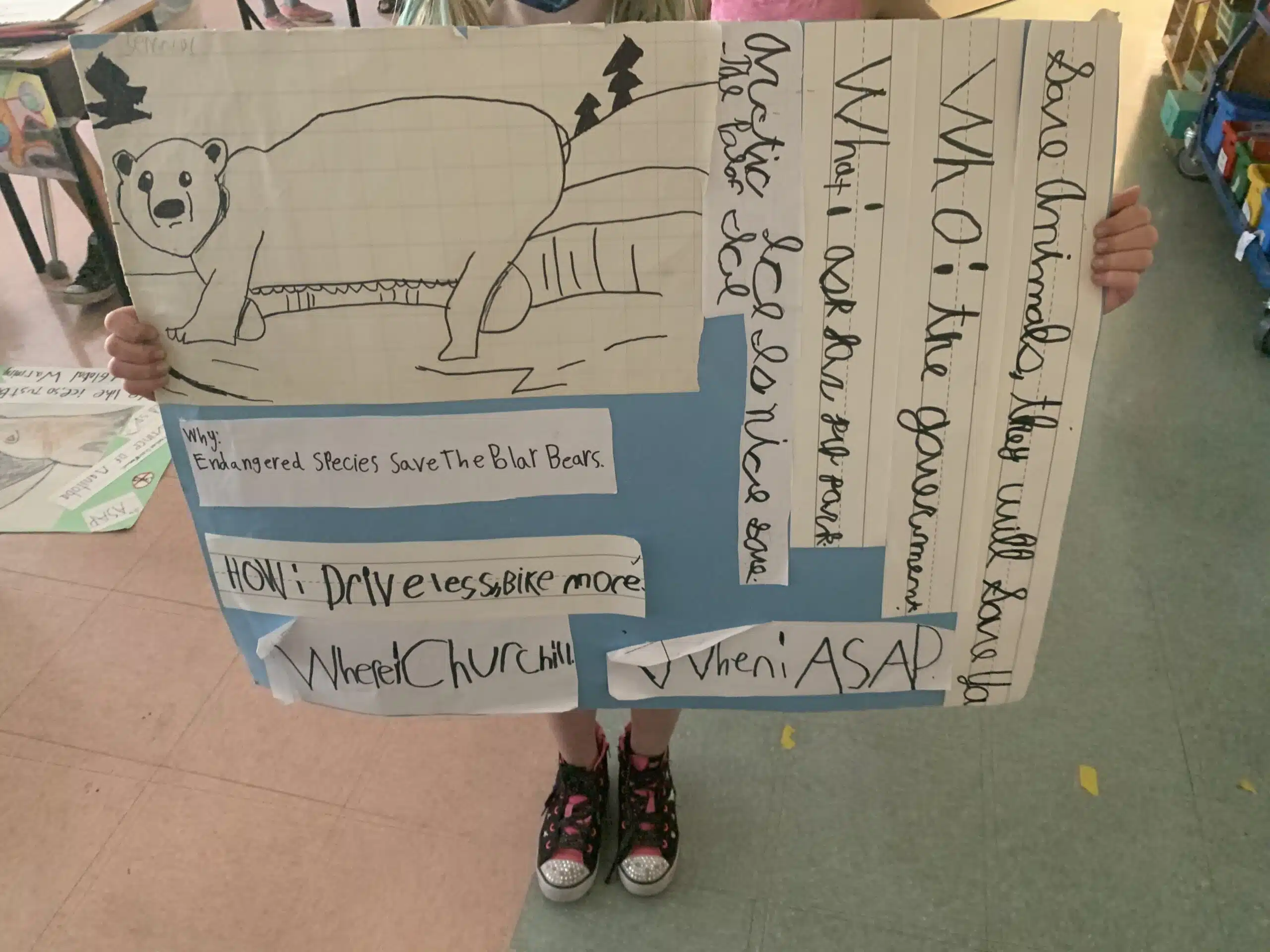
Take action to support protecting polar bear habitat with this easy letter-writing tool. You can learn more about the need to protect polar bears on our campaign page.
Grants from the Jane Goodall Foundation and Manitoba Teachers Society supported Greenway School’s class field trips to the zoo, Winnipeg Art Gallery, Manitoba Museum and Back Alley Arctic.

